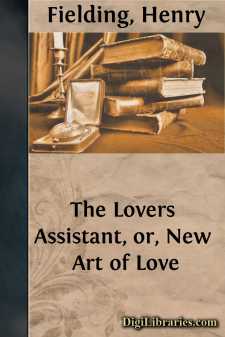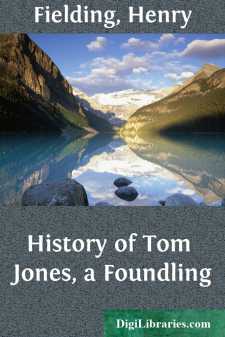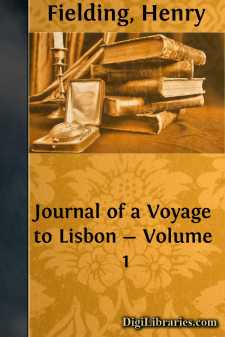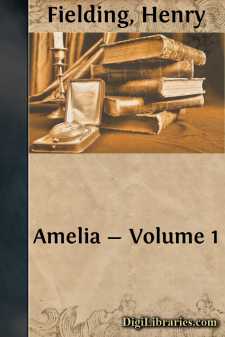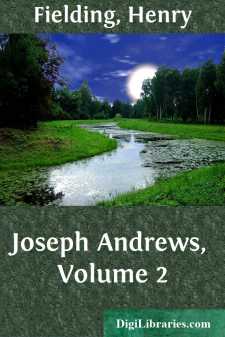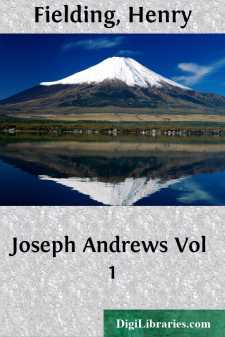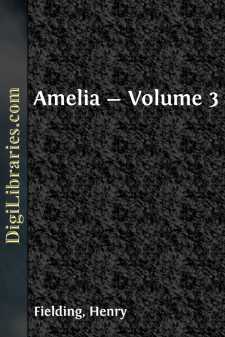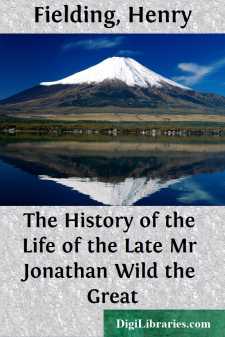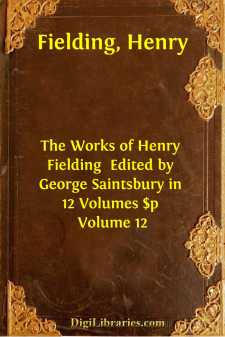Categories
- Antiques & Collectibles 13
- Architecture 36
- Art 48
- Bibles 22
- Biography & Autobiography 813
- Body, Mind & Spirit 141
- Business & Economics 28
- Children's Books 12
- Children's Fiction 9
- Computers 4
- Cooking 94
- Crafts & Hobbies 4
- Drama 346
- Education 46
- Family & Relationships 57
- Fiction 11826
- Games 19
- Gardening 17
- Health & Fitness 34
- History 1377
- House & Home 1
- Humor 147
- Juvenile Fiction 1873
- Juvenile Nonfiction 202
- Language Arts & Disciplines 88
- Law 16
- Literary Collections 686
- Literary Criticism 179
- Mathematics 13
- Medical 41
- Music 40
- Nature 179
- Non-Classifiable 1768
- Performing Arts 7
- Periodicals 1453
- Philosophy 64
- Photography 2
- Poetry 896
- Political Science 203
- Psychology 42
- Reference 154
- Religion 513
- Science 126
- Self-Help 83
- Social Science 81
- Sports & Recreation 34
- Study Aids 3
- Technology & Engineering 59
- Transportation 23
- Travel 463
- True Crime 29
Henry Fielding
Henry Fielding was an English novelist and playwright, renowned for his rich, humorous writing style and satirical prowess. Born in 1707, he is best known for his novel "Tom Jones," a pioneering work in the development of the modern novel. Fielding also co-founded the Bow Street Runners, often considered London's first police force, and made significant contributions to the English legal system.
Author's Books:
Sort by:
by:
Henry Fielding
INTRODUCTION The publishing history of this translation has been sketched by Cross, in his History of Henry Fielding, and may simply be summarized here. The first edition, entitled Ovid's Art of Love Paraphrased and Adapted to the Present Time (or Times) was first issued in February, 1747, and was advertised in the Gentleman's and Scots Magazines in that month. During March, further...
more...
by:
Henry Fielding
Sir, Notwithstanding your constant refusal, when I have asked leave to prefix your name to this dedication, I must still insist on my right to desire your protection of this work. To you, Sir, it is owing that this history was ever begun. It was by your desire that I first thought of such a composition. So many years have since past, that you may have, perhaps, forgotten this circumstance: but your...
more...
by:
Henry Fielding
THE VOYAGE WEDNESDAY, June 26, 1754.—On this day the most melancholy sun I had ever beheld arose, and found me awake at my house at Fordhook. By the light of this sun I was, in my own opinion, last to behold and take leave of some of those creatures on whom I doted with a mother-like fondness, guided by nature and passion, and uncured and unhardened by all the doctrine of that philosophical school...
more...
by:
Henry Fielding
INTRODUCTION. Fielding's third great novel has been the subject of much more discordant judgments than either of its forerunners. If we take the period since its appearance as covering four generations, we find the greatest authority in the earliest, Johnson, speaking of it with something more nearly approaching to enthusiasm than he allowed himself in reference to any other work of an author, to...
more...
by:
Henry Fielding
CHAPTER XIV. An interview between parson Adams and parson Trulliber. Parson Adams came to the house of parson Trulliber, whom he found stript into his waistcoat, with an apron on, and a pail in his hand, just come from serving his hogs; for Mr Trulliber was a parson on Sundays, but all the other six might more properly be called a farmer. He occupied a small piece of land of his own, besides which he...
more...
by:
Henry Fielding
GENERAL INTRODUCTION. There are few amusements more dangerous for an author than the indulgence in ironic descriptions of his own work. If the irony is depreciatory, posterity is but too likely to say, "Many a true word is spoken in jest;" if it is encomiastic, the same ruthless and ungrateful critic is but too likely to take it as an involuntary confession of folly and vanity. But when...
more...
by:
Henry Fielding
Chapter i. In which the history looks backwards. Before we proceed farther with our history it may be proper to look back a little, in order to account for the late conduct of Doctor Harrison; which, however inconsistent it may have hitherto appeared, when examined to the bottom will be found, I apprehend, to be truly congruous with all the rules of the most perfect prudence as well as with the most...
more...
by:
Henry Fielding
Jonathan Wild, born about 1682 and executed at Tyburn in 1725, was one of the most notorious criminals of his age. His resemblance to the hero in Fielding's satire of the same name is general rather than particular. The real Jonathan (whose legitimate business was that of a buckle-maker) like Fielding's, won his fame, not as a robber himself, but as an informer, and a receiver of stolen...
more...
by:
Henry Fielding
CHAPTER I The author dies, meets with Mercury, and is by him conductedto the stage which sets out for the other world. On the first day of December 1741 I departed this life at my lodgings in Cheapside. My body had been some time dead before I was at liberty to quit it, lest it should by any accident return to life: this is an injunction imposed on all souls by the eternal law of fate, to prevent the...
more...
by:
Henry Fielding
PROLOGUE, SPOKEN BY MR JONES Too long the Tragick Muse hath aw'd the stage,And frighten'd wives and children with her rage,Too long Drawcansir roars, Parthenope weeps,While ev'ry lady cries, and critick sleepsWith ghosts, rapes, murders, tender hearts they wound,Or else, like thunder, terrify with soundWhen the skill'd actress to her weeping eyes,With artful sigh, the handkerchief...
more...


